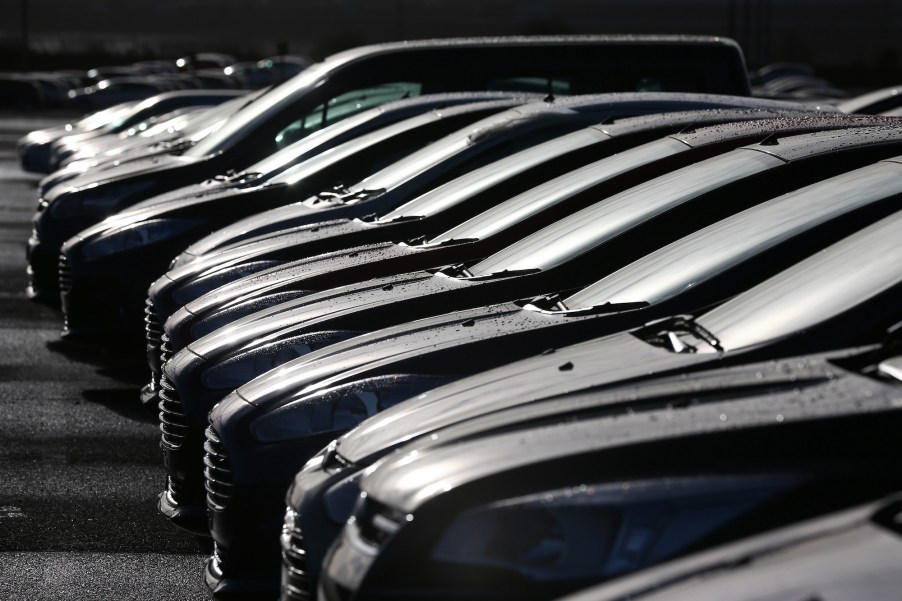
Car Companies Might Intentionally Report Recalls Late to Help Stock Prices, Study Shows
Car recalls aren’t uncommon, and most drivers accept them as part of owning a vehicle. However, for car companies and their shareholders, recalls can mean big hits to the bottom line.
So it might not be surprising that a recent study shows automakers delay reporting recalls. Doing so skirts negative attention and, thus, avoids stock penalties. Whether manufacturers do this intentionally is another matter.
The recent study about car recalls
According to Newswise, a recent study from the University of Notre Dame — “Hiding in the Herd: The Product Recall Clustering Phenomenon” — looks at how automakers handled their recalls over a 48-year span. Researchers studied recall data from the National Highway Traffic Safety Administration between 1966 and 2013 and analyzed over 3,100 recalls.
The researchers also looked at recall data from the Food and Drug Administration (FDA) between 2003 and 2012. And one notable difference between the recall data from the FDA and NHTSA was how each organization handled recall reporting. The FDA requires “a mandatory, firm-provided defect awareness date along with a recall initiation date,” Newswise reports. However, the NHTSA doesn’t.
This FDA requirement allows the agency to measure the time it takes firms to recall defective products. And because the NHTSA doesn’t demand that information, automakers might delay recalling cars to avoid being the first to report. That way, when they do announce a recall, it hides in a “recall cluster.”
The Notre Dame researchers’ findings
About 73 percent of automotive recalls in 48 years occurred in a recall cluster, the study, published by Informs, states. The researchers describe a “recall cluster” as a period of 34 days where an average of 7.6 recalls occur. Additionally, there were at least 16 days before and after a recall cluster where no recalls occurred.
The first recall in a cluster is a “leading recall.” While every subsequent one is a “following recall.” The researchers noticed recalls seemed to be announced next to one another. And they also found some interesting correlations between the timing of recalls and stock prices.
The researchers found that leading recalls generally caused bigger stock price hits than following recalls. The difference was as much as 67 percent. They also noticed that as more time passed between recall clusters, the company issuing the next leading recall saw an increased stock price drop.
Why companies would want to “hide in the herd”
No automaker wants to suffer a huge stock price hit. But do they delay recalls purposely to avoid stock penalties? Though that remains unproven, researchers suggest it may be in car companies’ best interest to let their recalls “hide in the herd.”
Because following recalls don’t affect automakers as negatively as leading recalls, it would be in their best interest to wait until a competitor issued a leading recall. The competitor would take a bigger hit, and then every other automaker reporting subsequent recalls would take a smaller hit.
To be fair, the researchers don’t claim automakers intentionally delay recalls to help their bottom line. Regardless, the researchers want the NHTSA to adopt similar rules to the FDA to force automakers to “report the date that they first became aware of a defect.” That way, automakers would avoid recalls delays that could jeopardize consumer safety.



